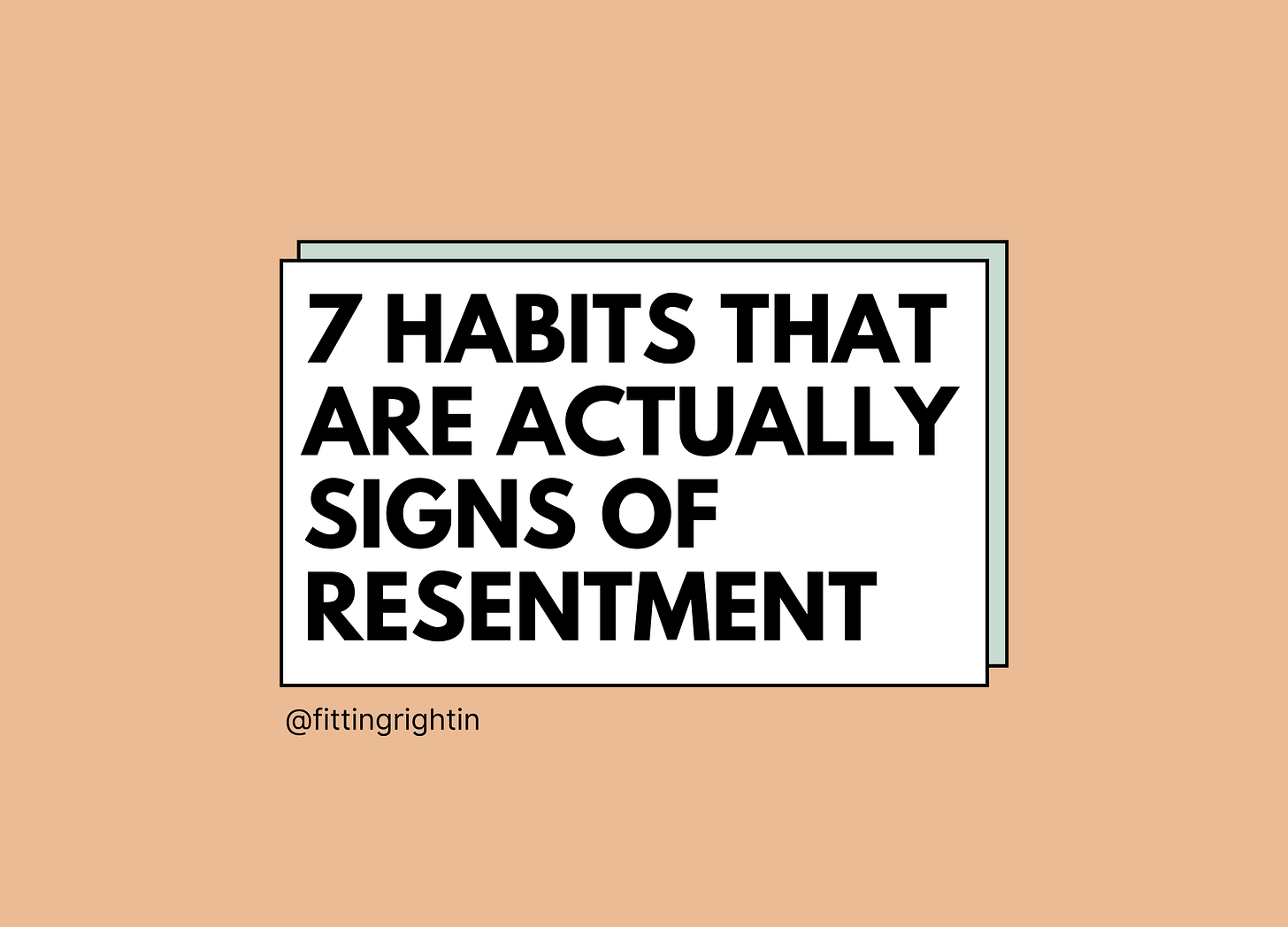Navigating Resentment: Understanding, Addressing, and Releasing Negative Emotions
Strategies for Maintaining Emotional Well-Being and Healthy Relationships.
Resentment is a bitter or angry feeling toward someone or something that hurt or offended you. Many things, such as a feeling of injustice, unfairness, or neglect, can cause it.
It's important to address our resentment and prevent it from building up in our relationships, as it can ruin our relationships by eroding our trust in each other.
In this article, we will explore why it's important to prevent resentment from building up, signs that you're resentful and healthy ways to release build-up resentment. I will leave you with some self-reflection questions to explore your feelings or resentment so you can address them.
Why it's important to prevent resentment from building up
Stopping anger from growing and resentment from building up is important for more than one reason. First of all, holding on to bad feelings can be bad for your mental and physical health. It can cause stress, anxiety, depression, and other health problems.
Second, resentment can hurt your relationships with others, making you feel isolated and lonely and causing more fights. Unresolved anger can also lead to staying stuck in a negative cycle because it makes it hard to talk to people in an open and helpful way, which can lead to more misunderstandings and hurt feelings.
Dealing with problems as they come up and practicing forgiveness can help you grow as a person and become more emotionally mature. This can help you overcome bad experiences and find more peace and happiness in your life. Therefore, it's important to stop resentment from building up if you want to stay emotionally healthy, has healthy relationships, and live a full life.
Negative consequences of building up resentment
Resentment can cause long-term stress and anxiety, leading to headaches, tiredness, and trouble sleeping.
Keeping bad feelings inside can make it hard to find happiness and satisfaction in life, leading to discontent and depression.
Resentment can cause problems in your relationships with family, friends, and coworkers because it can make you stop talking to them or make you more negative and critical of them.
Negative emotions can make it hard to focus and be productive, making you less effective at work or in other parts of your life.
Keeping a grudge can make you more likely to lash out or get defensive in a fight, which can cause more stress and tension and hurt relationships even more.
Stress and worry that last for a long time can cause health problems like heart disease, high blood pressure, and a weaker immune system.
Signs you're feeling resentful
You're holding onto grudges: Resentment often involves holding onto negative feelings about past events or actions of others.
You're avoiding people: Resentment often drives you to avoid the person or people you feel resentful towards rather than addressing the issue.



